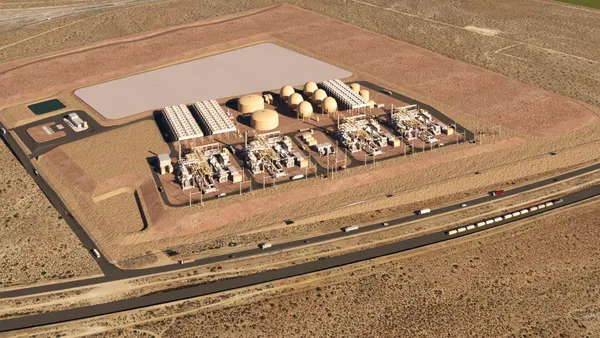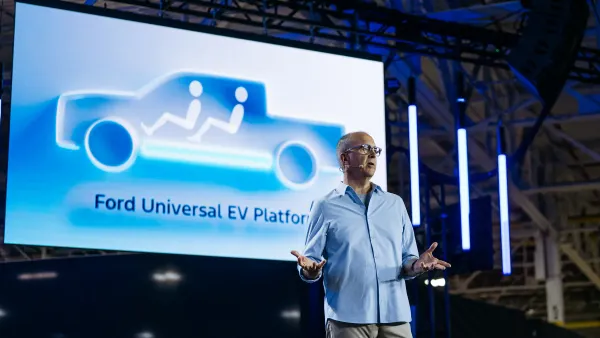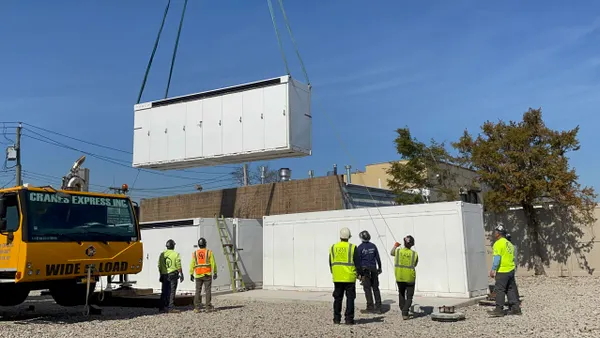Dive Brief:
- Sen. Susan Collins, R-Maine, introduced a bipartisan bill on Wednesday that would authorize $300 million over five years for research and development of grid-scale energy storage, in order to lower the price of the technology.
- Collins also sponsored bipartisan and bicameral energy storage bills, introduced by Sen. Tina Smith, D-Minn., and Rep. Sean Casten, D-Ill., on Wednesday, focused on providing $1.05 billion over the next five years to improve how storage is incorporated into long-term planning and piloting of storage systems.
- Meanwhile, the House version of a bill seeking to make existing tax incentives available for energy storage gained its first Republican cosponsor on Monday — Rep. Vern Buchanan, R-Fla. Clean energy developers and advocates are prioritizing the storage tax incentive this year over other energy tax initiatives.
Dive Insight:
Energy storage has increasingly garnered bipartisan support in Congress, and clean energy advocates are hoping the proposed legislation will prompt action from the Republican-led Senate leadership.
But the road is not simple.
"Senate leadership priorities depend on many moving parts ... separate from the bipartisan support that some energy storage policies have," Kelly Speakes-Backman, CEO of the Energy Storage Association, told Utility Dive. She commended the legislators involved in both storage bills introduced Wednesday.
While the storage tax credit bills haven't progressed through the House or Senate, policy advocacy groups are identifying potential legislative vehicles this year for tax extenders.
"The tax stuff never gets done as a standalone," Jeremy Harrell, policy managing director at advocacy organization ClearPath, told Utility Dive. Legislators will likely be looking to attach tax incentive policy to revenue raising measures, he said.
"Very rarely is Congress able to attach [a tax extender] to a disaster relief bill or something," he added.
Momentum on storage
There are nearly a dozen different bills in Congress focused on energy storage. Many of them have bipartisan support.
"Right now, we're trying to put pressure on the dam to make sure something breaks through," Speakes-Backman said of the growing amount of storage-related bills.
Shortly after the House introduced an energy storage tax incentive bill (H.R. 2096), Sens. Martin Heinrich, D-N.M., and Cory Gardner, R-Colo., introduced a Senate version, S. 1142. The bicameral legislation is bipartisan now that H.R. 2096 has a Republican cosponsor.
Senate Finance Committee Ranking Member Ron Wyden, D-Ore., also introduced a broad bill that would make clean energy tax incentives technology neutral. Wyden and Finance Chairman, Sen. Chuck Grassley, R-Iowa, are seeking longer term solutions for all tax credits that expired in the last two years or will expire soon. They launched a task force specifically to discuss the path forward for energy tax incentives.
The bills that didn't focus on tax incentives were still lauded by the industry as a way to spur bipartisan action and support.
"All these different bills getting out there is just going to lay momentum to say 'Hey, we need to move on this front,'" Harrell said.
Reps. Chris Collins, R-N.Y., and Mark Takano, D-Calif., introduced a trio of energy storage bills in March. They focused on enabling loan guarantee support for the technology; establishing a competitive pathway for storage systems as part of utilities' supply side resource process; and requiring the Department of Energy to carry out several energy storage programs, such as research and technical assistance.
Senators introduced another bipartisan storage bill in April: S. 1183 is sponsored by Amy Klobuchar, D-Minn., and Jerry Moran, R-Kansas. The bill would direct the Secretary of Energy to award microgrid and energy storage grants for $5 million per fiscal year from 2020 through 2025.














